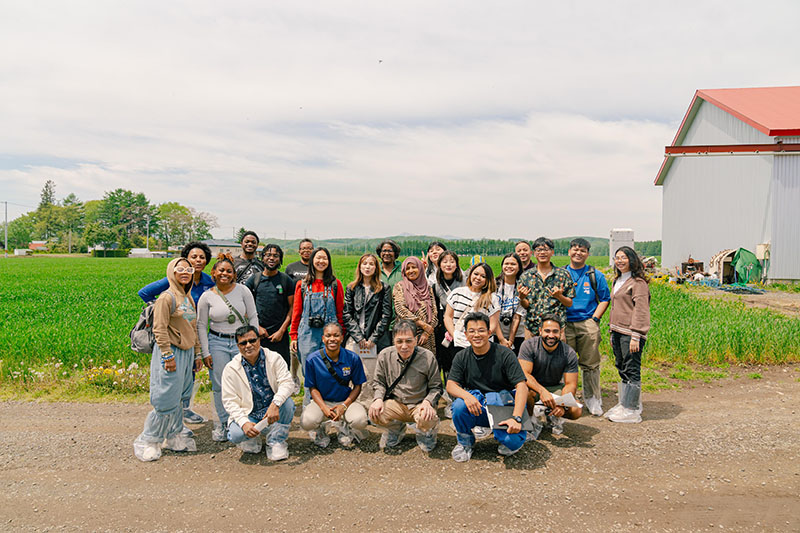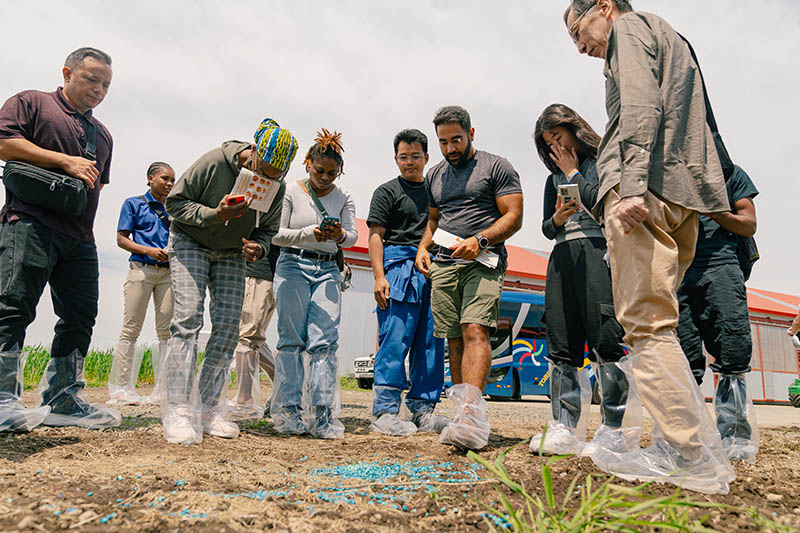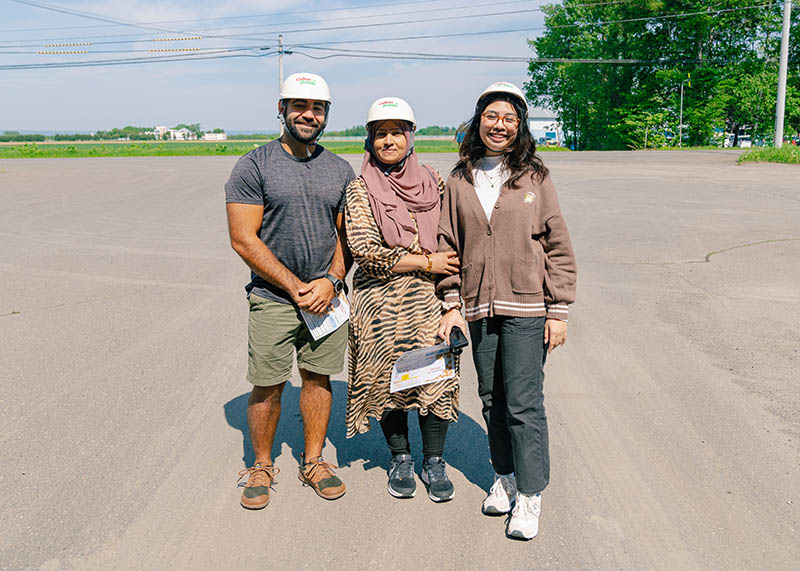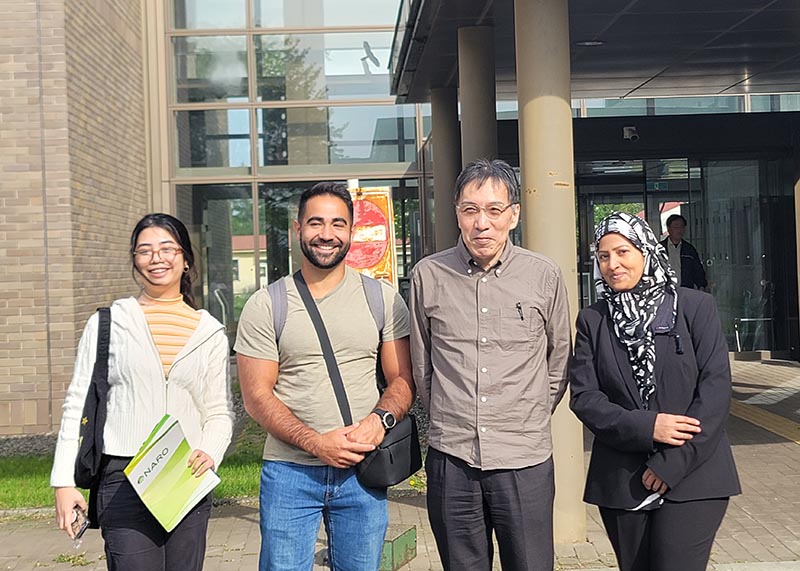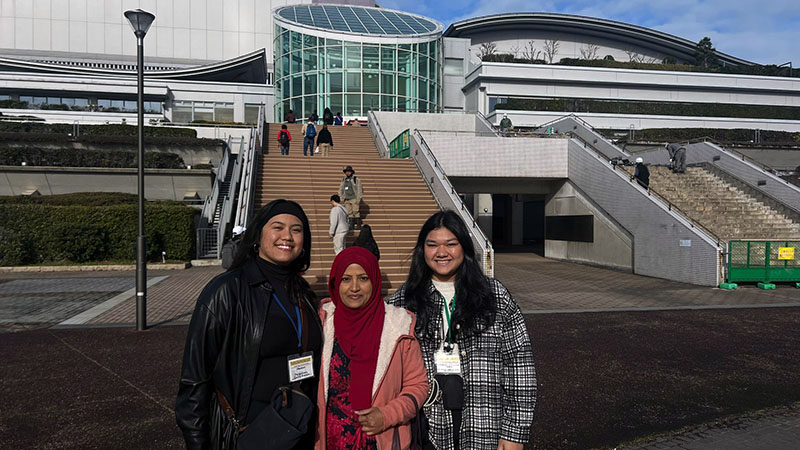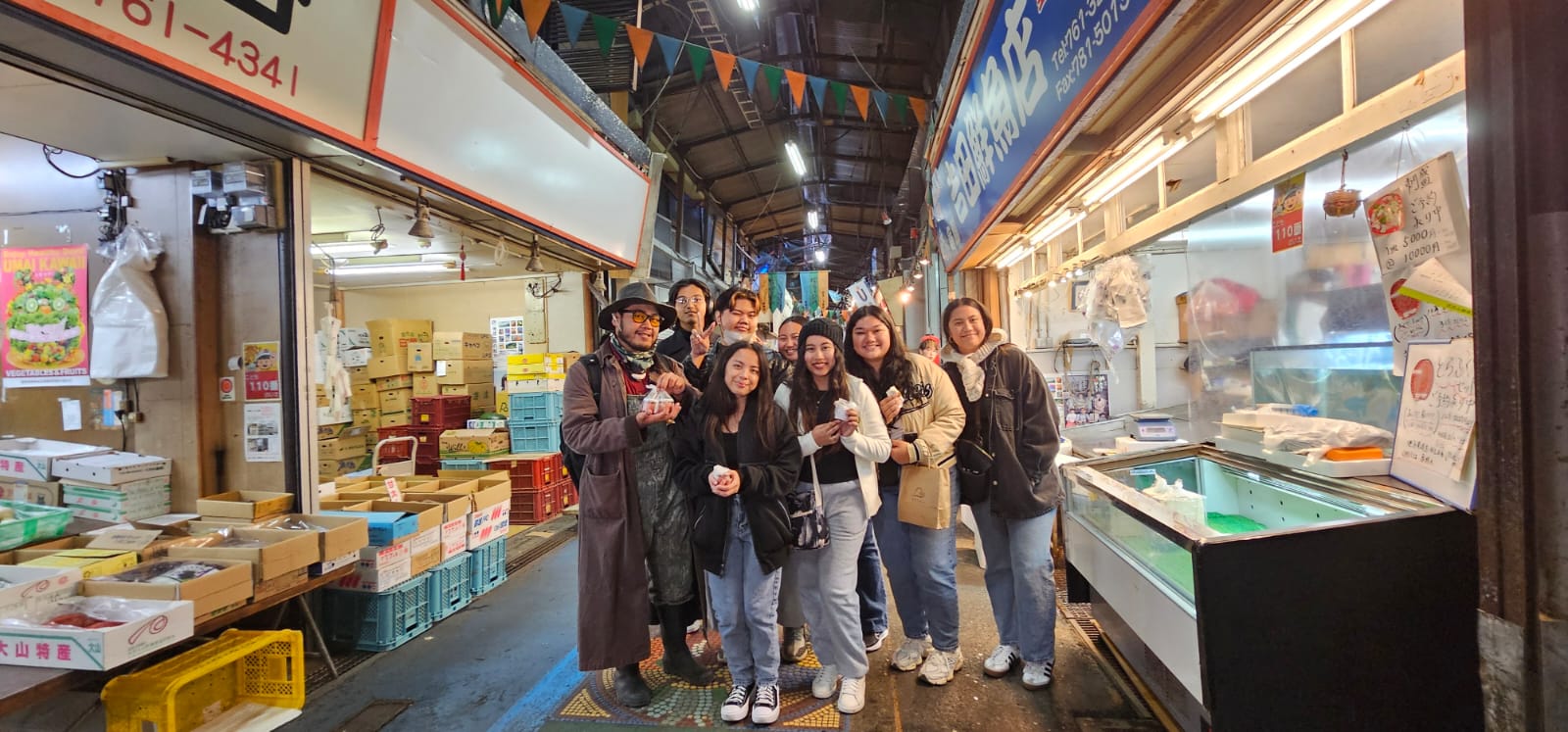Farms, food labs, and factories: UOG students see agriculture careers in action in Japan
Farms, food labs, and factories: UOG students see agriculture careers in action in Japan
Farms, food labs, and factories: UOG students see agriculture careers in action in Japan
7/25/2024
Four University of Guam students with interests in agriculture and nutrition had the opportunity to see their prospective career fields from a different lens last semester. Two embarked on an experiential learning trip to Fukuoka, Japan, while two others ventured to Obihiro on Japan’s northernmost island of Hokkaido — both prominent agritourism destinations.
“It’s commonly mistaken that agriculture majors must be going into farming, when most ag majors go into industries supporting agriculture, like sales, management, distribution, research, and regulation,” said agriculture and natural resource science major Vivek LeBouef upon returning from the trip.
The trips were designed to show students the vast career and business opportunities possible in agriculture — specifically in agritourism, which are agriculture ventures that also operate as educational or entertaining tourist attractions.
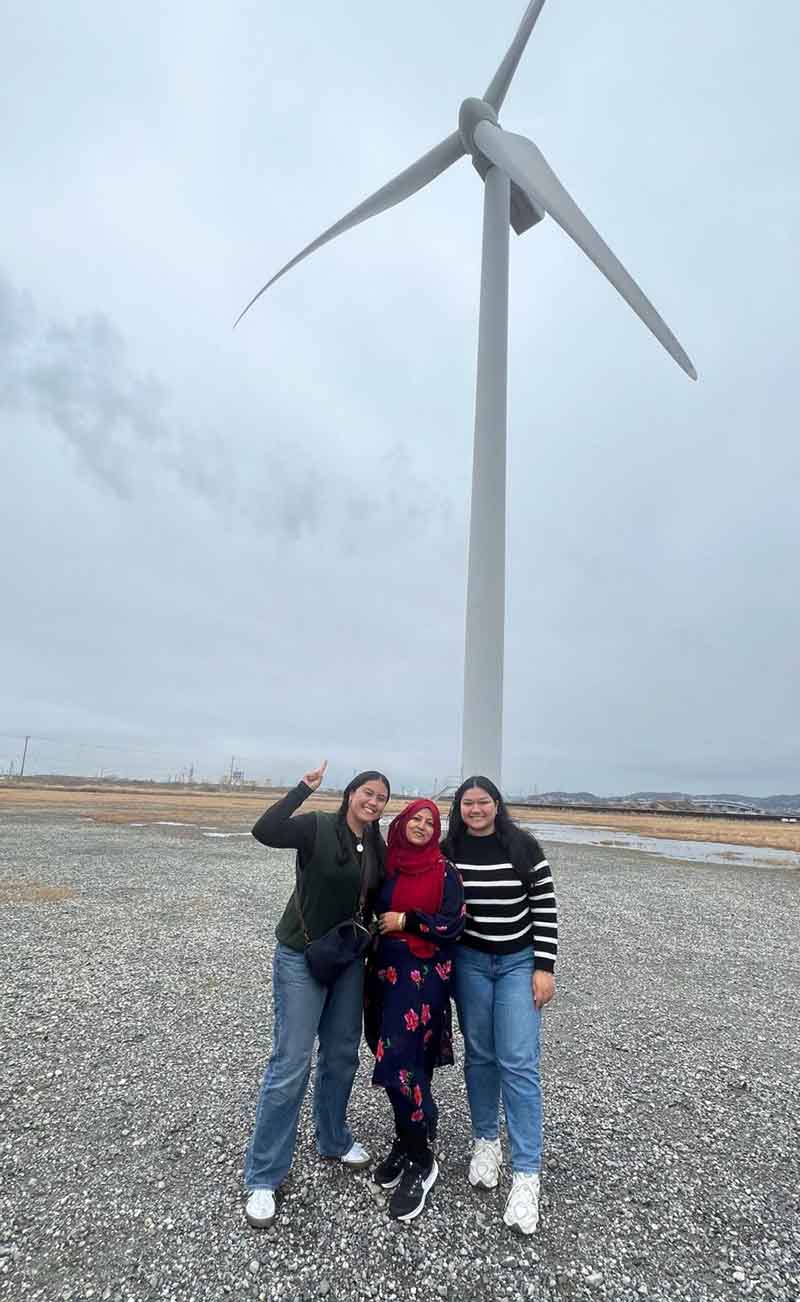
The students were two of four cohorts of Pacific Islanders that will benefit from a NextGen initiative at Northern Marianas College titled the “Agritourism: Regenerative Workforce Initiative.” NextGen programs nationwide, funded by the U.S. Department of Agriculture, are working to inspire the next generation of food, agriculture, and natural resources specialists. NMC’s initiative, in particular, aims to inspire U.S. insular area and African American students toward future agritourism endeavors that can benefit their communities.
Over nine days in February, tropical agriculture major Cecilia Pangelinan and human nutrition and food sciences major Lara Mazloum joined students from NMC, Tennessee State University, and Fukuoka University in touring various food museums and factories, including where mentaiko, a traditional Japanese spread made from pickled pollock roe, and Hiyoko, bird-shaped cakes that originated in Fukuoka and became famous throughout Japan, are made.
They also saw innovative recycling and waste management facilities, including the Kitakyushu Eco-Town sustainability center and the Clean Park RinKai waste-to-energy plant. These facilities also double as tourist attractions.
“Agritourism can effectively integrate recycling and waste management facility tours by promoting sustainable practices that emphasize the importance of reducing waste in the food industry, on agricultural farms, and in daily life,” said Dr. Sahena Ferdosh, a faculty partner on NMC’s grant and Land Grant research fellow at UOG who accompanied the students on their trips.
On the Hokkaido learning trip, LeBouef and chemistry-biology major Christel Valerio were exposed to dairy farms, sugar beet operations, and factories for cheese, Calbee potato products, and Meiji chocolate.
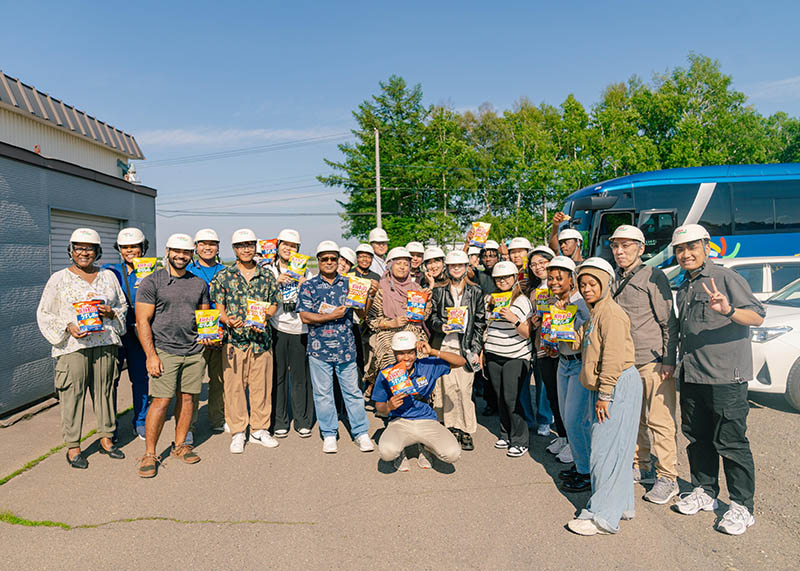 “The employees that worked at the Calbee potato chip factory storing and processing
potatoes were all agriculture majors,” LeBouef noted.
“The employees that worked at the Calbee potato chip factory storing and processing
potatoes were all agriculture majors,” LeBouef noted.
In addition to facility tours, the learning experience gave the students an idea of the breadth of agricultural research taking place and how research has been able to impact sustainability practices in Japan.
“The most significant takeaway for me is that there is an expansive amount of agricultural research and development being done around the world,” LeBouef said. “Guam has a lot of potential growth in local agriculture industries, both small and large.”
Mazloum, who plans to become a registered dietitian, said it was intriguing to see how research labs are organized in Japan and to see what high-tech equipment can do.
For Pangelinan, she said the experience undoubtedly influenced her career outlook.
“I am more motivated than ever to pursue a career that integrates my interests in agriculture, cultural exchange, and technological innovation,” Pangelinan said. “I envision myself contributing to the development of sustainable solutions that address the agricultural challenges throughout Micronesia, drawing inspiration from the invaluable lessons learned during my time in Japan's agritourism industry.”
Upcoming opportunities
The NextGen initiative at NMC will have more experiential agritourism learning opportunities coming up that UOG students can apply for: one to Tennessee State University, one to Washington State University, one to Palau and Pohnpei in Micronesia, and one to Taiwan and Malaysia.
To stay posted on these opportunities, contact Dr. Sahena Ferdosh at ferdoshs@triton.uog.edu.

